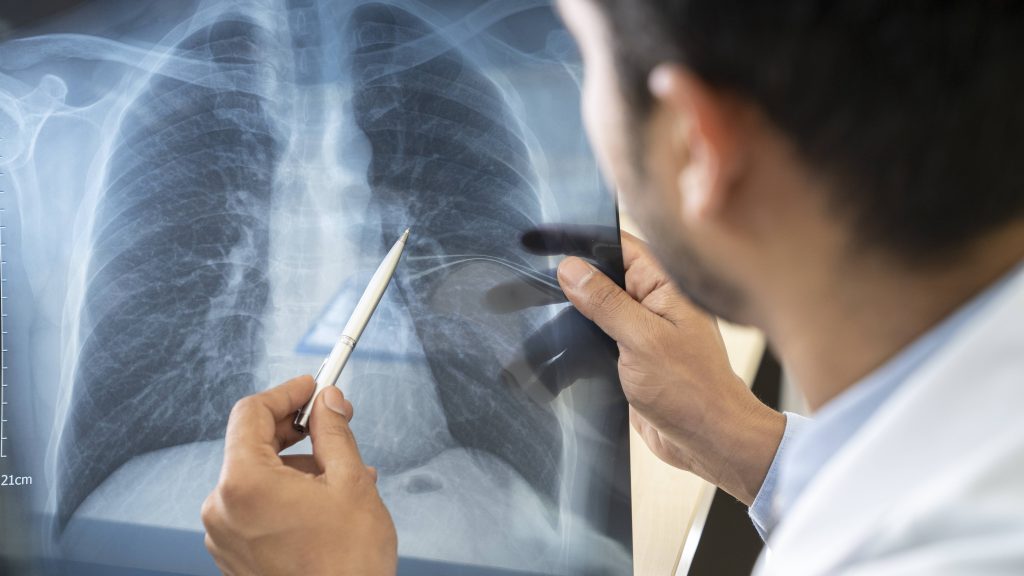
If you smoke and are thinking about quitting, consider that tobacco smoking is a leading cause of chronic obstructive pulmonary disease, or COPD, a chronic inflammatory lung disease that causes obstructed airflow from the lungs. And COPD is the third leading cause of death worldwide, responsible for more than 3 million deaths a year.
"Tobacco damages the airways. It damages the substance of the lungs as well and causes emphysema," says Dr. John Costello, a pulmonologist at Mayo Clinic Healthcare in London. "It's the major cause of COPD and should be avoided at all costs anyway."
Watch: Dr. John Costello talks about chronic obstructive pulmonary disease (COPD).
Journalists: Broadcast-quality sound bites with Dr. Costello are in the downloads at the end of the post, along with b-roll of cigarette smoking. Please courtesy: "John Costello, M.D. / Pulmonology / Mayo Clinic Healthcare London."
Environmental factors also can contribute to COPD, often depending on the country. Those may include living in enclosed environments with fires and poor ventilation, as well as exposure to chemicals and pollutants.
"In developed countries, tobacco smoking is one, two and three." Dr. Costello says. "Certainly, in anybody who's developed the condition, if you want to stop the progress of the condition, you must stop smoking."
COPD is a chronic inflammatory lung disease that refers to lung conditions, including emphysema and chronic bronchitis.
"Chronic bronchitis and emphysema are not the same things, but they are intimately interlinked," says Dr. Costello. Emphysema and chronic bronchitis often occur together, with smoking the leading cause.
"One of the definitions of chronic bronchitis is that you have a cough and sputum for more than three consecutive months or two consecutive years, usually the winter months," Dr. Costello says.
For people with emphysema, the air sacs, or alveoli, in the lungs are irreversibly damaged. Once this happens, it becomes difficult to breathe. While emphysema cannot be cured, it can be treated.
Along with breathing and lung issues, people living with COPD are at risk for other diseases.
"People with COPD are more at risk of cancer, heart disease and coronary artery disease," says Dr. Costello. "And, indeed, at the end stage of the condition, heart failure (is possible) because their blood oxygen is so low."
Over the past 20 years, more women than men have died of COPD in the U.S. Many factors contribute to this statistic, reports the Center for Disease Control and Prevention. This includes the fact that women seem to be more vulnerable to the effects of tobacco and other harmful substances, such as indoor air pollution.
Listing all the reasons to quit smoking is easier than quitting. Dr. Costello says he acknowledges the highly addictive nature of nicotine, and he tries not to lecture patients but rather offer information.
"Every single cigarette smoked does some damage," says Dr. Costello. "The strongest possible advice here is to quit smoking, to avoid smoking, to avoid smoke in your environment if you can do it."
Read more:
____________________________________
For the safety of its patients, staff and visitors, Mayo Clinic has strict masking policies in place. Anyone shown without a mask was either recorded prior to COVID-19 or recorded in a nonpatient care area where social distancing and other safety protocols were followed.
Related Articles







